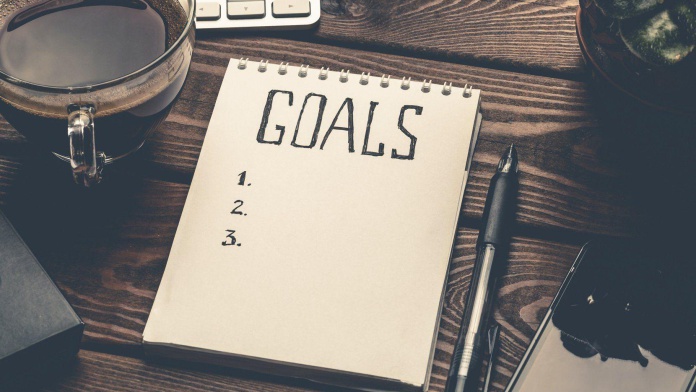
A note to those on a diet – especially if you’re not getting results
It’s January – Happy New Year!
With January comes new hopes, and a certain positive approach to looking forwards to the future – after all the New Year is a new cycle: a clean slate upon which we have no recorded failures, mistakes or imperfections.
That means that people tend to set some pretty optimistic goals. New Year’s Resolutions are as much of a tradition as going back to work and telling people that you struggled to get up that morning, or explaining that you ‘just had a quiet one’. The most common goal set – far more popular than learning a language or an instrument – is losing weight.
Now don’t panic, I’m not about to write a blog about how New Years Resolutions are stupid, and I’m not going to tell you that you shouldn’t say New Years Resolutions are stupid, and I’m not going to tell you that you should be supportive of people who set them. We’re like 2 weeks into January, you’ve read all of those things a million times or so already, that’s not interesting.
What this blog is, is a quick note that I would like you to share with anyone who HAS set a New Years Resolution that involves eating better or losing weight. If someone has shared this with you and you are one of these people – Hi, welcome to the party.
The reason that I think this blog needs to be written is because my Facebook feed is full of people detoxing. It’s because I’ve seen probably upwards of 20 pictures of really sad looking lunches already today. It’s because I reckon 30-40% of the females in my life are doing Slimming World now, and it’s because last night I watched a TV show which compared a bunch of diets and decided that ‘Lighter Life’ is the best diet because it costs the least money per pound that a person lost on it, which is a RIDICULOUS metric for determining whether a diet is ‘good’ or not.
I’m writing this blog because I want to give some really straightforward and actionable tips and pointers to anyone who’s starting out on a diet. Of course, a ‘diet’ is only a temporary thing and the ideal is that someone starts out on a lifestyle change by making small and sustainable habit changes which take them towards a more health-focused way of life – but right now, a lot of people are taking their first big step by embarking on a focused period of controlled eating in order to give themselves a kickstart and make them feel better, so I want to help.
(For the more sustainable approach – it wouldn’t be a bad idea to check out the AfN Approved Nutrition Coaching Course – Foundation Programme which you can join at any time. We teach you there, in detail, how to set up everything about your diet (or that of any clients you work with) that you need to know for success, which is pretty useful if you ask me.)
But right now a lot of people are dieting, and I would like to offer some useful pointers because a lot of dieting practices are more counterproductive than you might initially think.

What’s the difference?
Strictly speaking, your ‘diet’ is simply the food that you eat, but let’s not play ignorant here. In the real world, a ‘diet’ is an approach you take towards weight loss.
A ‘Diet’ usually has a name. In order to give a diet a name you need to create a set of rules that make up its identity – for example to do Lighter Life properly you need to use their meal replacements/courses/ and then follow a set of guidelines for one solid meal per day. If you don’t do these things then, by definition, you are not following that diet – it’s as clear cut as that.
Of course, not everyone does a named diet, but that doesn’t mean you don’t create a set of rules for yourself. These rules are typically articulated as ‘I’m going to eat clean’ or ‘I’m going to eat healthy’ but ‘I’m cutting out X’ falls into the same category. Diets have rules. They are black and white. You’re doing it, or you’re not.
They are very attractive because they promise that following them to the letter WILL lead to results, they generally come with a bunch of testimonials and, most importantly, it’s a ‘paint by numbers’ system. Do this, eat that, avoid that, and at the end you’ll get a predictable result.
Diets may be hard to follow, but they aren’t complicated.
Nutrition is the branch of science pertaining to nutrients and food, and in order to improve your health, body composition or other things that matter to you like sports performance, you can ‘improve your nutrition’.
The key difference here is that ‘improving your nutrition’ doesn’t really come with a rule book. It’s a bunch of shades of grey, which makes it appear complicated and let’s face it, in comparison with a clear set of instructions, it kind of is.
To improve your nutrition you have to learn some things, and the vast majority of pop-science books and nutritional Newspaper articles that get published every year seem to be going out of their way to make it appear like you need to know ALL OF THE THINGS in order to actually make a meaningful impact.
I’m not so sure.
The problem with diets
Diets work. Their efficacy isn’t really up for debate – if you swap your meals for Slim Fast, you will lose weight pretty quickly. The key problem is with the period after that.
Everyone knows that if you crash diet you will put the weight back on. That’s not really news, but it’s not for the reason that is usually given. You don’t damage your body or go into starvation mode, and it’s not that the fast fat loss somehow sets you up for massive weight gain per se – the key issue is that there is no educational process. By following a paint by numbers scheme you don’t become an artist, you just learn how to follow instructions, and by doing a diet you don’t learn how to eat like a lean person, you just learn that replacing meals, eating strange food products (I’ll get to this in a second) or drinking shakes causes fat loss.
But when you want to stop losing fat? Well, then what?
It’s not like you can keep chugging those shakes or rehydrating weird pasta things from a sachet. It’s not like you can seriously consider continuing counting calories or Syns or points until your 75, so at SOME POINT you need to do something else.
And what is that something else? Prior to the diet, your food intake consisted of things that resulted in you needing to go on a diet, and realistically you can’t follow the rules of whatever plan you’ve chosen forever.
So – there has to be some give. I realise that most dieters will answer this by saying that after their diet they will ‘eat healthily’, but that raises two further questions:
A) How are you going to do that?
B) Why not just do that to begin with?
The second issue which is just as important is that the rules of commercially promoted diets are interested in causing fat loss above all else. Now, to cause fat/weight loss you need to be in a calorie deficit, and that means that every single commercially promoted diet out there causes one by whatever means they have chosen to use in order to create a niche.
Slimming World is basically a very low fat diet which focuses on food volume. Atkins is a very low carbohydrate diet which focuses on satiating foods which aren’t very varied. Meal Replacement diets give you very, very low calorie intakes facilitated by providing the foods to you (as is the case of the cabbage soup diet and that weird thing Beyonce did with the Maple Syrup), and juice cleanses are designed to keep you on the verge of starvation by both disallowing you anything that has calories and leaving you with so little money you couldn’t buy actual food if you wanted to.
The rules state – do these things and your calorie intake will be a lot lower, so you’ll lose weight. That’s awesome, but it generally leaves some pretty damn big holes.
Slimming World has a lot of commercial sponsors/partners. Proponents are asked to notice that Muller Lights are Syn Free while many Greek Yoghurt brands which have more protein, less added sugar and fewer calories are not. This is because Muller work alongside SW in an effort to co-promote products. On SW and other plans like it you are encouraged to eat low calorie things like Nimble Bread, Ryevita crisp breads and other godawful things that just make you gradually more upset as you chew them – this doesn’t exactly make one excited about the prospect of starting.
The Atkins diet (and other commercial ketogenic or very low carb diets) generally leaves you with a very little in the way of fibre, and tend to put you at significant risk of a low intake of various other nutrients.
The paleo diet, when adhered to in its strictest form, disallows dairy which is a very important source of calcium, as well as pulses which have a ton of health benefits.
Vegetarianism/veganism leaves you VERY prone to nutrient deficiencies. (I realise that a lot of plant based folk aren’t doing it for fat loss, but a lot of people absolutely are. If you adopt these approaches for ethical reasons, that’s your thing and I won’t argue, but that doesn’t change the fact that you need to pay attention).
I don’t think I need to really explain the health issues surrounding meal replacement or juice based semi-fasts.
The reason these are guidelines rather than rules, is because guidelines are basically optional.
Finally, there’s that whole ‘rules’ thing. Because a diet has rules, you are either adhering to it or you are not, and as I mentioned earlier despite the simplicity of commercial diets they are restrictive by nature and therefore hard to stick to. If you break the rules, you are off the diet and you have failed – regularly failing at something isn’t exactly great for your self esteem, and soon enough you will quit. That’s not you being weak, or lacking willpower, it’s you either consciously or subconsciously realising that the diet you are on isn’t something you can do long term.
Stopping doing something you realise isn’t something you can do long term isn’t weak, it’s entirely rational. The problem isn’t with you, it’s with the approach.
So not only do diets not REALLY cause long-term weight loss, not only do they leave you at significant risk of nutrient deficiencies (either due to faulty science as per low carb diets or the paleo diet) but they are designed in a manner which allows you to ‘fall of the wagon’, to ‘cheat’, to ‘fail’ which is damaging to your self esteem and which leads you to ‘Oh F@%£K it’ moments of cheesecake based debauchery.
The solution
In order to lose weight, you need to create a calorie deficit. In order to improve your health, energy, skin quality, hair, exercise performance and recovery, sleep, mood, bowel movements and ‘liveliness’ you need to improve your nutrition, too.
The solution here is to blend the simplicity of a diet which tells you what to do, with the lack of rigidity and eye on things other than simply eating less which encompasses improving your nutrition as a whole.
The best way to do this is to learn about nutrition – Again, the AfN Approved Nutrition Coaching Course – Foundation Programme is a PERFECT way to do that in a structured and simple format which comes with as much support as you could want – but I’m a realist, so I’m going to give you a pretty good head start by looking at a third option. We aren’t going to go on a diet, and we aren’t going to necessarily talk a lot about what you eat.
We’re going to look at HOW you eat.
I’m going to give you some guidelines which I’d like you to think about following.
If you follow these simple steps, you’ll be in a much better place than you would be if you were to follow a diet, you’ll more than likely lose weight at a sensible rate, and you will stand a far greater chance of sticking to it long term. This is all without REALLY knowing anything about nutrition, because most of the things I’m going to mention aren’t strictly about nutrition and above all else I KNOW you already know, more or less, how you should eat (carrots are better for you than crisps, skinless chicken thighs are better for you than Southern Fried Goujons).
The reason these are guidelines rather than rules, is because guidelines are basically optional.
You can break a rule and therefore fail, but you can’t break a guideline – you can only make the decision as an adult to ignore it and accept the consequences which that brings. Ignoring guideline 2 will make fat loss harder, but it’s doesn’t make you a bad person, it just means that you accept a harder route to fat loss, and that’s OK.

Here are the guidelines, you don’t have to take them all on right now, just think about them and choose a couple you could maybe have a go at:
- Don’t keep food other than fruit and vegetables in plain sight anywhere in your home or on your desk at work. Proximity leads to temptation, if you can see breakfast cereal on the kitchen counter, if you have a clear biscuit tin looking at you or if you have celebrations on your desk, you’ll be tempted and then you’ll have to use willpower to resist that temptation. Remove the temptation to begin with. You’re far more likely to eat the first thing you see when you open the fridge than the 5th, so think about how you stock up
- Keep liquid calories to a minimum. Liquid calories aren’t filling but they DEFINITELY count. Use common sense here, a little milk in your tea is fine and a tall latte isn’t going to kill anyone, but a tea with three sugars or a mocha Frappuccino isn’t a great choice. Drink alcohol no more than one day per week if you can help it, and it’s not a bad idea to make a personal policy of swapping sugary pop to diet versions or water every time. Note – this absolutely includes vitamin water, fruit juice, smoothies and milkshakes
- Emphasise lean protein in each main meal you eat. A palm sized portion of lean meat or measuring cup (about half a big tub) of Greek or Icelandic yoghurt is a good start
- Eat at the table, from a plate. Not at your desk, not in the car, not in front of the TV. Eat slowly and mindfully, and stop when you’re not hungry anymore. This includes any snacks you plan to eat in between meals
- Emphasise vegetables at each main meal that you eat. These would ideally make up 1/3 of your plate, and should be nice and colourful
- Serve food into a plate or bowl, then sit to eat it. Eating from a bag/packet or eating while standing up leads to eating way more than you thought you did
- Buy only the food you actually want to eat. Don’t buy stuff you know isn’t going to help your goals just because it’s on offer, and don’t get in some stuff ‘for emergencies’. Those emergencies aren’t going to come
- Consider using smaller dinner plates. You eat more off bigger plates, even if you think you don’t – this is REALLY well researched and the people who think they aren’t fooled are always the ones fooled the most
- If there’s a food you can’t stop eating when you start, or which you really, really crave, it’s probably best to go cold turkey for at least a little while. (Long standing readers will know I DO NOT buy Nutella…)
- Stay active. 10,000 steps is a great target to aim for
- These seem simple, and they are, but that’s the point. Rather than doing a strict diet which leaves you hungry, lethargic, demotivated and ultimately back at square 1, create personal policies which will guide you towards making better choices for the rest of your life, then start refining things as you go from a food choice perspective as you learn a little about nutrition here and there
These are simple, but they are damned effective.
And you didn’t even need to eat celery.